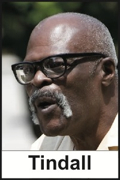Rascals case in brief
In the beginning, in 1989, more than 90 children at the Little Rascals Day Care Center in Edenton, North Carolina, accused a total of 20 adults with 429 instances of sexual abuse over a three-year period. It may have all begun with one parent’s complaint about punishment given her child.
Among the alleged perpetrators: the sheriff and mayor. But prosecutors would charge only Robin Byrum, Darlene Harris, Elizabeth “Betsy” Kelly, Robert “Bob” Kelly, Willard Scott Privott, Shelley Stone and Dawn Wilson – the Edenton 7.
Along with sodomy and beatings, allegations included a baby killed with a handgun, a child being hung upside down from a tree and being set on fire and countless other fantastic incidents involving spaceships, hot air balloons, pirate ships and trained sharks.
By the time prosecutors dropped the last charges in 1997, Little Rascals had become North Carolina’s longest and most costly criminal trial. Prosecutors kept defendants jailed in hopes at least one would turn against their supposed co-conspirators. Remarkably, none did. Another shameful record: Five defendants had to wait longer to face their accusers in court than anyone else in North Carolina history.
Between 1991 and 1997, Ofra Bikel produced three extraordinary episodes on the Little Rascals case for the PBS series “Frontline.” Although “Innocence Lost” did not deter prosecutors, it exposed their tactics and fostered nationwide skepticism and dismay.
With each passing year, the absurdity of the Little Rascals charges has become more obvious. But no admission of error has ever come from prosecutors, police, interviewers or parents. This site is devoted to the issues raised by this case.
On Facebook
Click for earlier Facebook posts archived on this site
Click to go to
Today’s random selection from the Little Rascals Day Care archives….
Click for earlier Facebook posts archived on this site
Click to go to
Today’s random selection from the Little Rascals Day Care archives….
Can we cope with seeing wrongful convictions?
 Feb. 20, 2015
Feb. 20, 2015
“Exonerations, which were once exceedingly rare, have become regular features of the American justice system. The National Registry of Exonerations records 1,535 exonerations nationwide (including Bob Kelly and Dawn Wilson) since records began in 1989….
“The 125 wrongful convictions thrown out in 2014… might seem paltry compared to the estimated 1 million felony convictions per year, but the number of wrongful convictions is likely far higher. Many jurisdictions don’t devote the same level of resources towards exonerations that North Carolina does (with its Innocence Inquiry Commission), and even then the process can be achingly slow.
“For a justice system that exalts due process and the presumption of innocence, any wrongful conviction represents a serious breakdown of justice. Even a handful of high-profile wrongful convictions can ripple throughout the public consciousness, undermining confidence in the system. ‘The country is having to psychically cope with conclusive evidence that we make, with some regularity, errors in criminal trial outcomes,’ said (Mary Kelly Tate, director of the University of Richmond law school’s Institute for Actual Innocence).”
– From “Guilty, Then Proven Innocent” by Matt Ford at The Atlantic (Feb. 9)
Day-care ritual-abuse claims vs. ‘The Cosby Show’
 Sept. 20, 2013
Sept. 20, 2013
“In 1984 in particular we see a turning point in the media representation of American motherhood. Two major media events exemplified the cultural contradictions in which working mothers were caught:
“On one end of the spectrum, the McMartin day-care child-molestation scandal (followed by a barrage of similar scandals), and on the other end the spectrum, the premiere and runaway success of ‘The Cosby Show.’
“The former served as the direst warning of what happens when mothers go to work and entrust their children to others. The latter suggested that you could work at a demanding job, express frequent exasperation with your kids and threaten to murder them on a regular basis, and yet have a loving husband and children and be a terrific mother….”
– From “The Mommy Myth: The Idealization of Motherhood and How It Has Undermined Women” by Susan J. Douglas and Meredith W. Michaels (2004)
Another child-witness, now grown, spills the beans
Sept. 8, 2015
“Jennifer (a pseudonym) reached out to me after seeing an interview I gave about the McMartin Preschool trial…. She said she had been involved in a similar case as a child and that her experiences with the police, the judicial system, and a series of therapists mirrored those of the McMartin children. Now an adult with a career and family of her own, she agreed to speak with me about her experiences during the trial and in the decades since….
“Jennifer’s experiences illustrate the consequences of the misguided ‘belief’ in children that so many therapists, parents, and cops professed during the 1980s….”
– From “Moral Panic and the Myth of Recovered Memory” by Richard Beck at Literary Hub (Aug. 18)
Although Beck presents more as a historian than a journalist, his interview with Jennifer is a significant addition to the sparse roster of recanting (or not) child-witnesses. Not surprisingly, her account offers numerous parallels not only to McMartin but also to Little Rascals:
- “lots of phone conversations and meetings” among parents
- an interviewer with “anatomically correct dolls”
- her initial insistence that “nothing had happened”
- “a tour of the jail” arranged by the therapist to assure her that the supposed molester was safely behind bars
- her capitulation in the face of endless therapy sessions, leading her to “finally just start… making stuff up.”
- the eventual overturning of her day-care teacher’s conviction
Might Jennifer’s coming forward, however tentatively, lead the way to more recantations by child-witnesses?
‘How long, O Lord, will you forget me forever?’
 Sept. 12, 2012
Sept. 12, 2012
“Connie Tindall wanted to be pardoned before he died. But like Jerry Jacobs, Joe Wright and Ann Shepard before him, Tindall was buried Friday without knowing if the state of North Carolina will ever pardon members of the Wilmington 10.”
– From the Wilmington Star-News (Aug. 10, 2012)
Tindall died at age 62 – younger than Bob Kelly and Scott Privott. Will the Edenton Seven live long enough to see themselves exonerated?











0 CommentsComment on Facebook